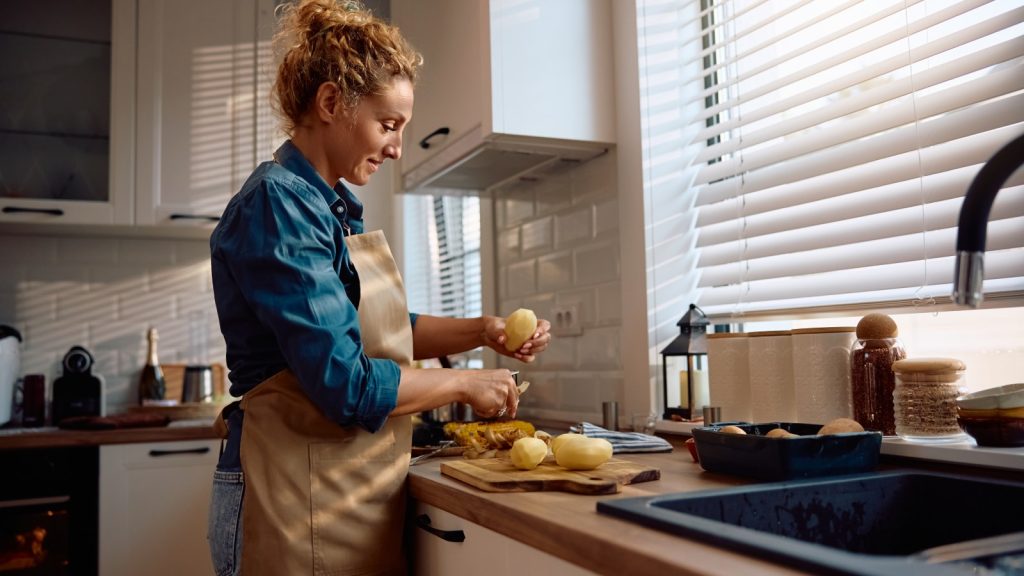Garbage disposals are handy kitchen appliances, but they’re not invincible. Many homeowners make the mistake of treating their disposal like a trash can, leading to costly repairs or replacements. Understanding what not to put down your garbage disposal can save you from headaches and expensive plumbing bills. This list covers 18 items that should never go into your disposal, explaining why they’re problematic and how they can damage your system. By following these guidelines, you’ll extend the life of your disposal and avoid unnecessary repairs.
1. Coffee Grounds
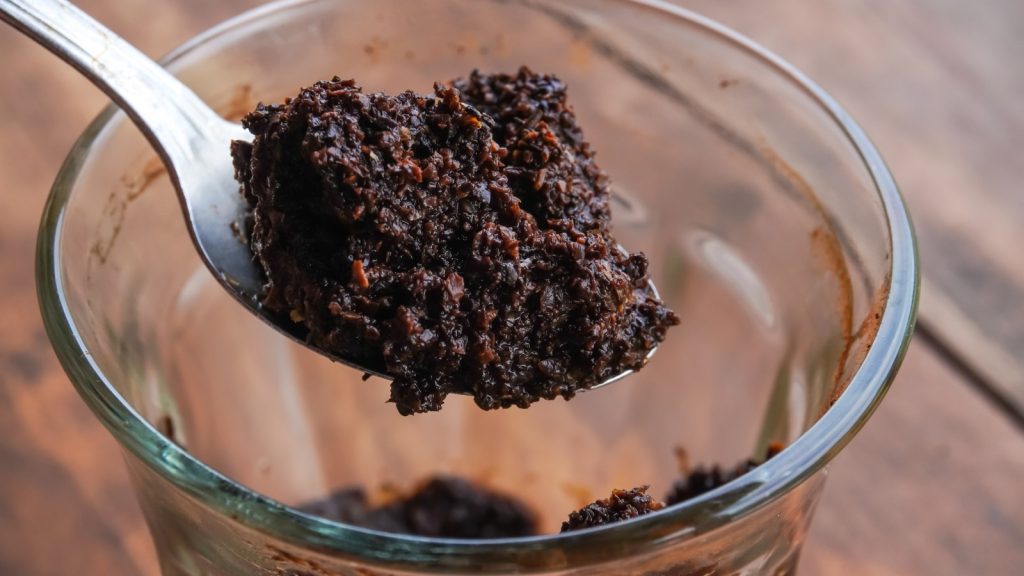
Coffee grounds can create a thick, sludgy paste in your pipes. While a few grounds might seem harmless, they accumulate over time and don’t break down easily. This build-up can lead to severe clogs and potentially damage your disposal’s motor. Instead, use coffee grounds in your garden as a natural fertilizer or add them to your compost bin.
2. Eggshells
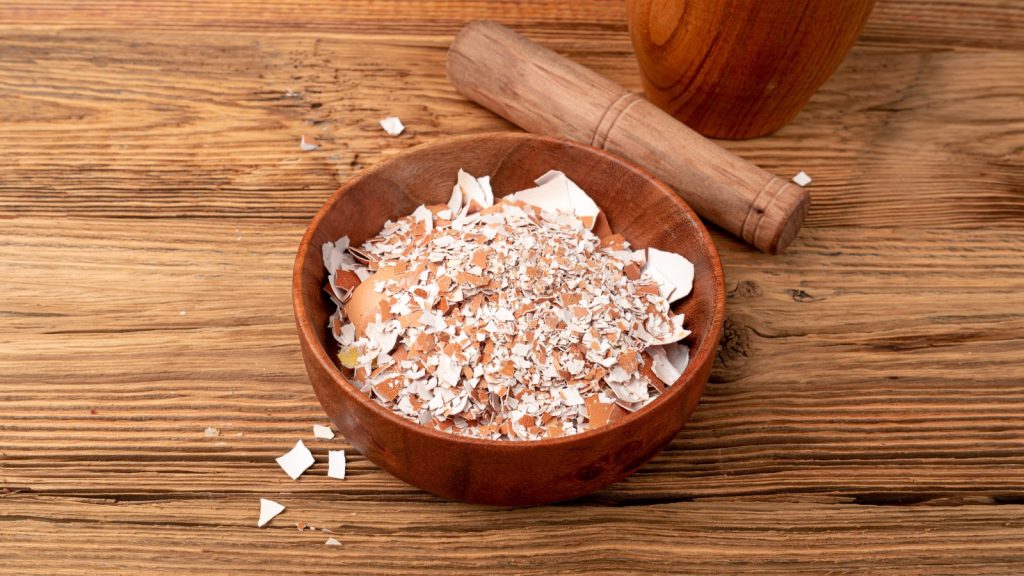
Contrary to popular belief, eggshells are bad for your garbage disposal. The membrane lining can wrap around the blades, and the ground-up shells create a sand-like substance that can clog pipes. Over time, this can lead to a complete blockage. Crush eggshells and add them to your compost or use them as a natural pest deterrent in your garden.
3. Cooking Oil and Grease
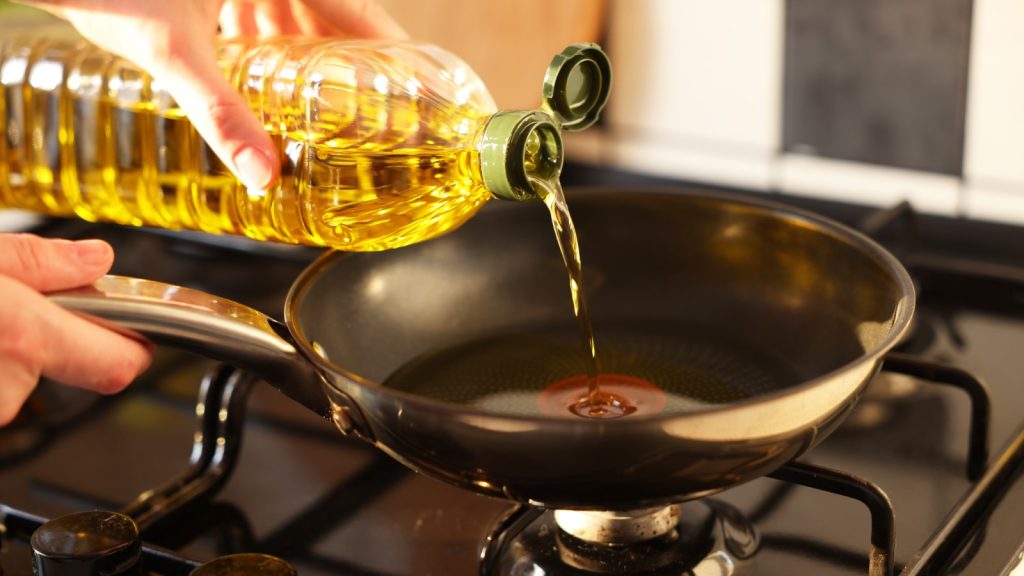
Liquid oils might seem harmless, but they solidify as they cool. This creates a sticky coating inside your pipes that catches other debris, leading to clogs. Even small amounts can build up over time. Instead, pour cooled grease into a container and dispose of it in the trash or save it for cooking.
4. Pasta and Rice
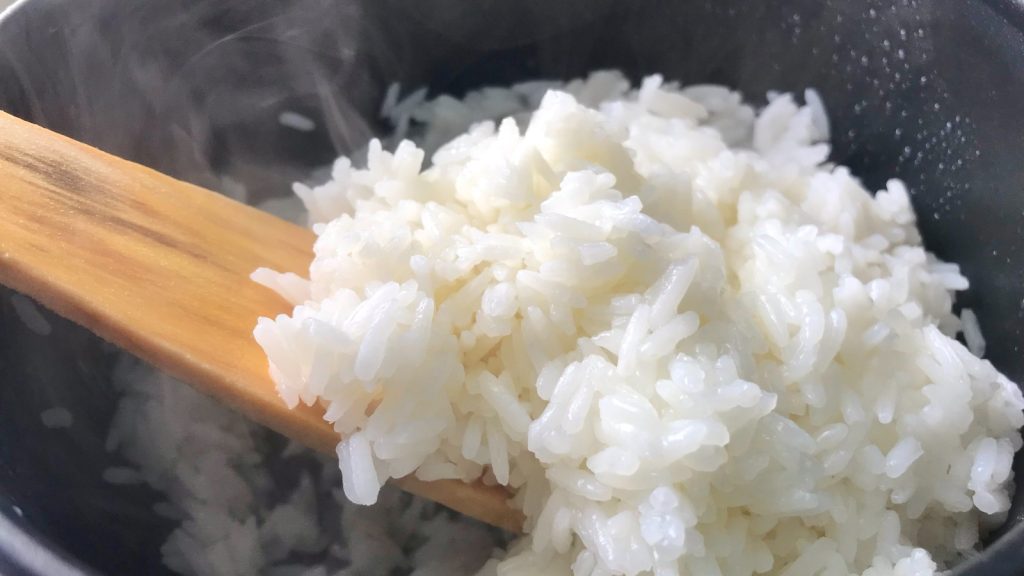
Starchy foods like pasta and rice continue to expand when exposed to water, even after cooking. In your disposal and pipes, they can swell and create a paste-like substance that leads to clogs. A single serving of cooked pasta can expand to the size of a small rodent in your pipes. Compost these items or throw them in the trash.
5. Fibrous Vegetables
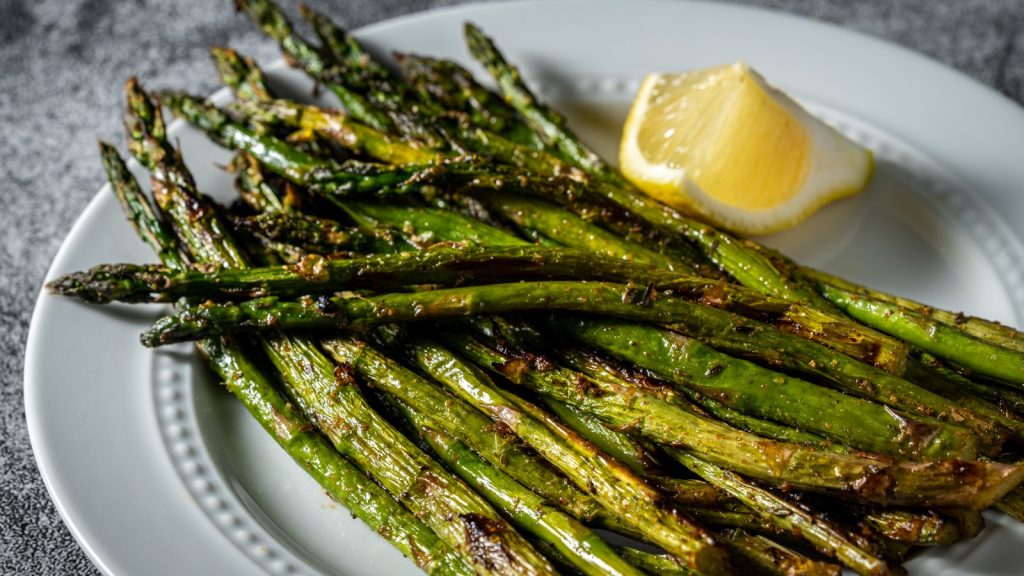
Stringy, fibrous vegetables like celery, asparagus, and corn husks can wrap around your disposal’s blades. This can jam the motor or, in severe cases, break it completely. The tough fibers also don’t break down easily, increasing the risk of clogs. Chop these veggies into small pieces for composting or disposal in the trash.
6. Fruit Pits and Seeds
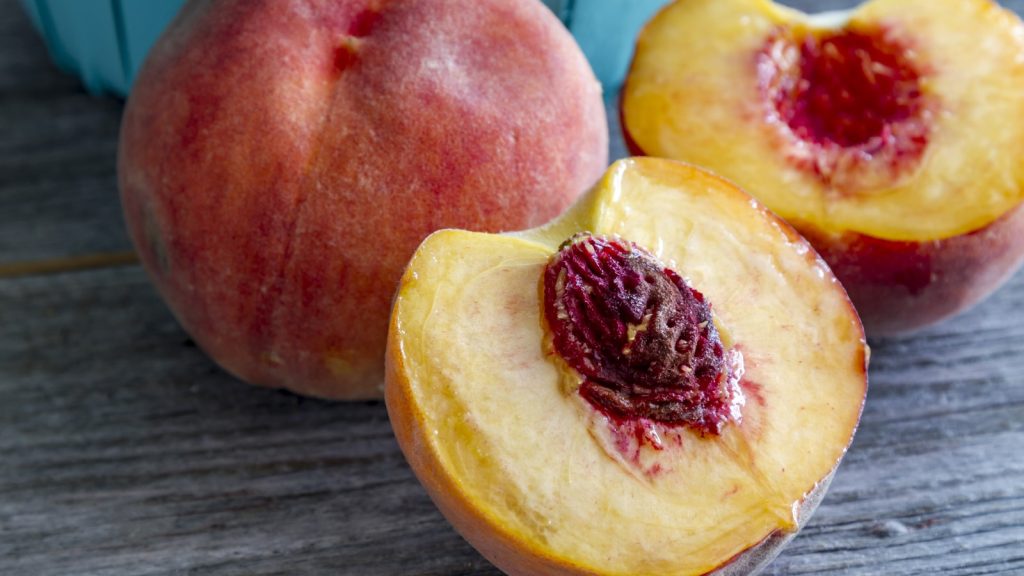
Hard items like fruit pits and seeds can damage your disposal’s blades or get stuck in the grinding chamber. A peach pit, for example, is too hard for most disposals to grind effectively. These can also bounce around inside the disposal, potentially cracking the interior. Always dispose of pits and seeds in the trash or compost.
7. Bones
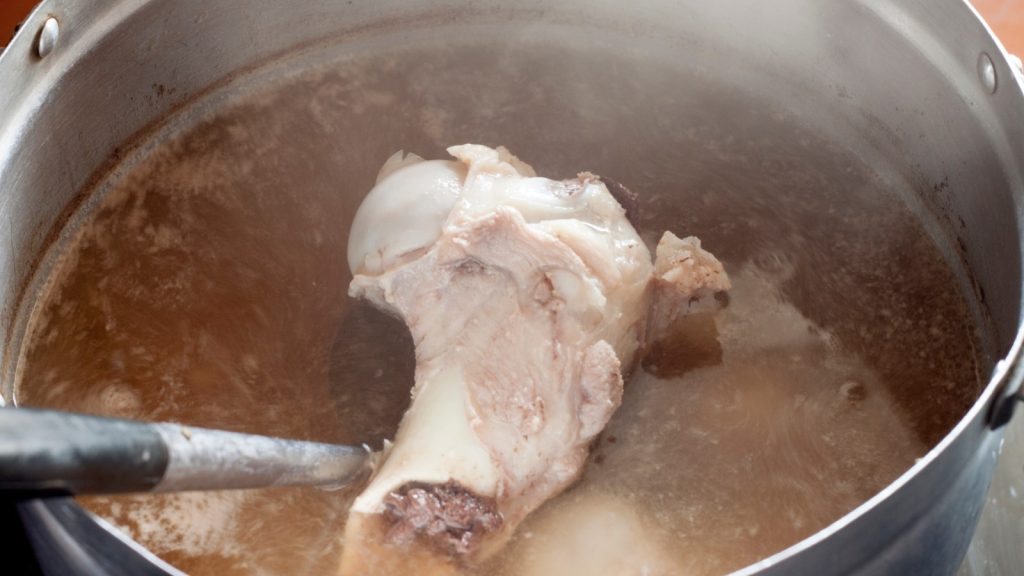
While some high-end disposals claim to handle bones, it’s best to avoid them altogether. Bones can dull or chip the blades and potentially jam the motor. Even if ground up, bone fragments can collect in pipes and cause blockages. Use bones to make stock or dispose of them in the trash.
8. Potato Peels
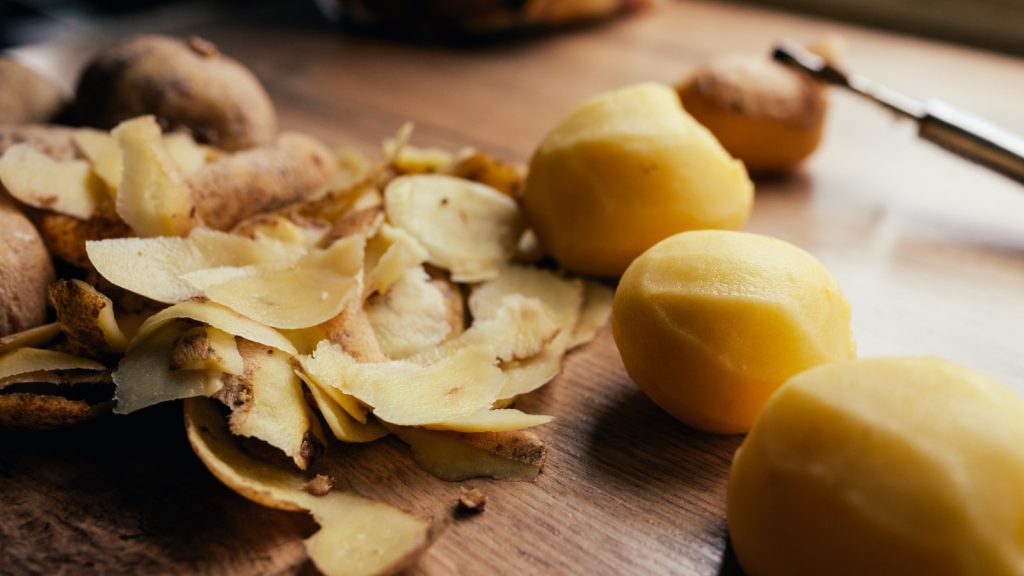
Potato peels contain a lot of starch, which can create a thick paste in your pipes. They can also slip past the disposal, potentially clogging the pipe. A single potato’s worth of peels can cause a significant blockage. Compost potato peels or use them in recipes like homemade potato chips.
9. Onion Skins
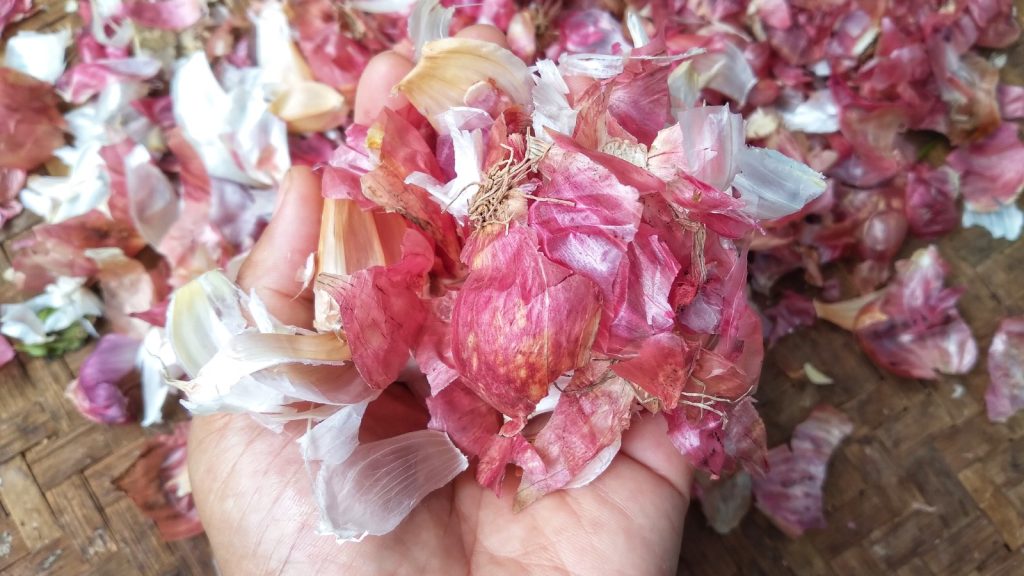
The thin membrane layer just beneath the dry skin of an onion can pass through the disposal and get stuck in the drain pipe. This layer doesn’t break down easily and can catch other debris, leading to clogs. Compost onion skins or use them to add flavor to soups and stocks.
10. Nuts and Seeds
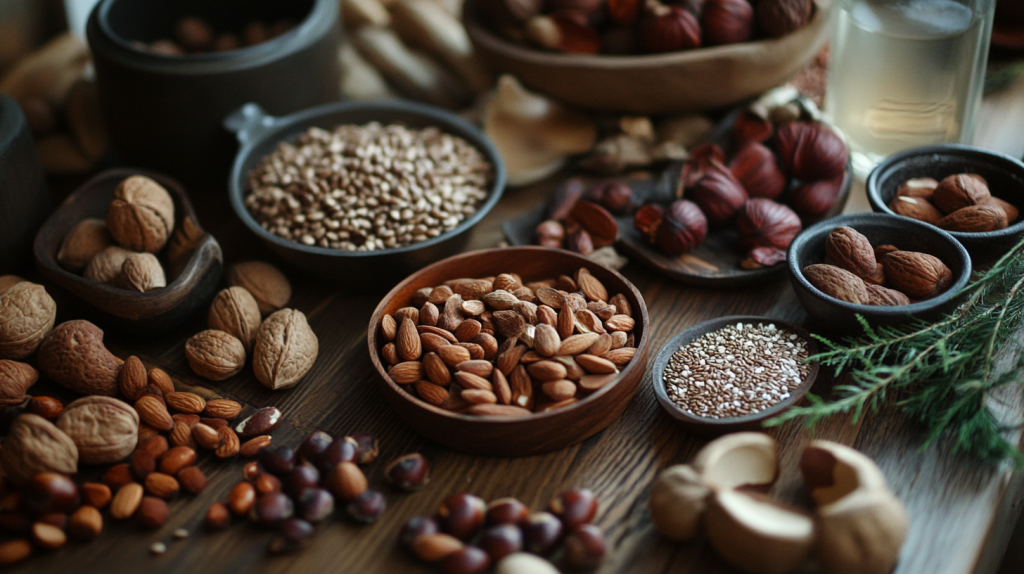
Nuts and seeds can turn into a paste-like substance when ground up, similar to peanut butter. This sticky paste can clog pipes and potentially jam your disposal’s motor. Additionally, small, hard seeds can get caught in the disposal’s crevices. Dispose of nuts and seeds in the trash or use them in cooking.
11. Cleaning Chemicals
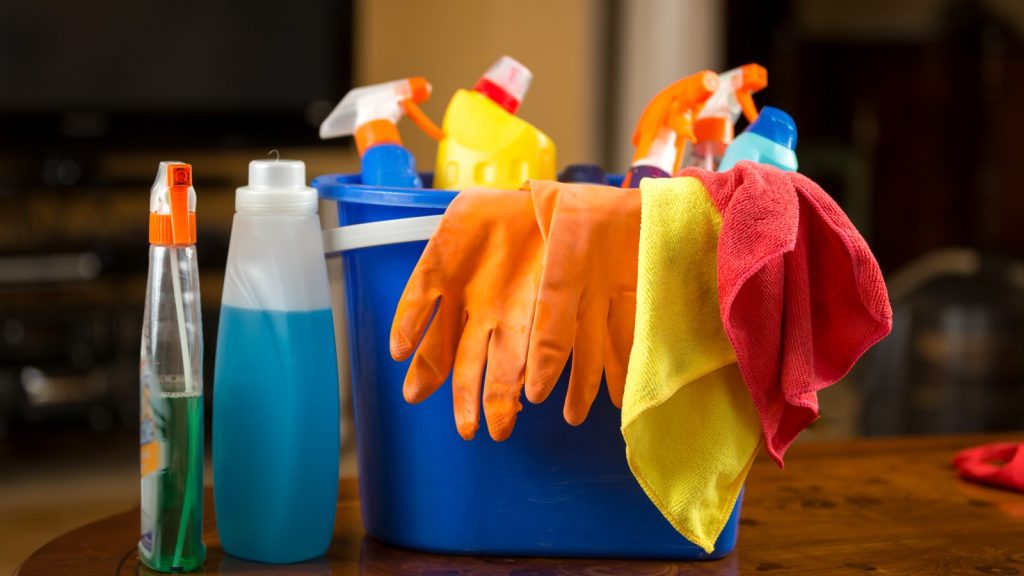
Harsh chemicals can corrode your disposal’s metal components and damage your pipes. Even products marketed for disposals can be harmful if used excessively. Stick to natural cleaning methods like grinding ice cubes and lemon peels to clean and deodorize your disposal.
12. Non-Food Items
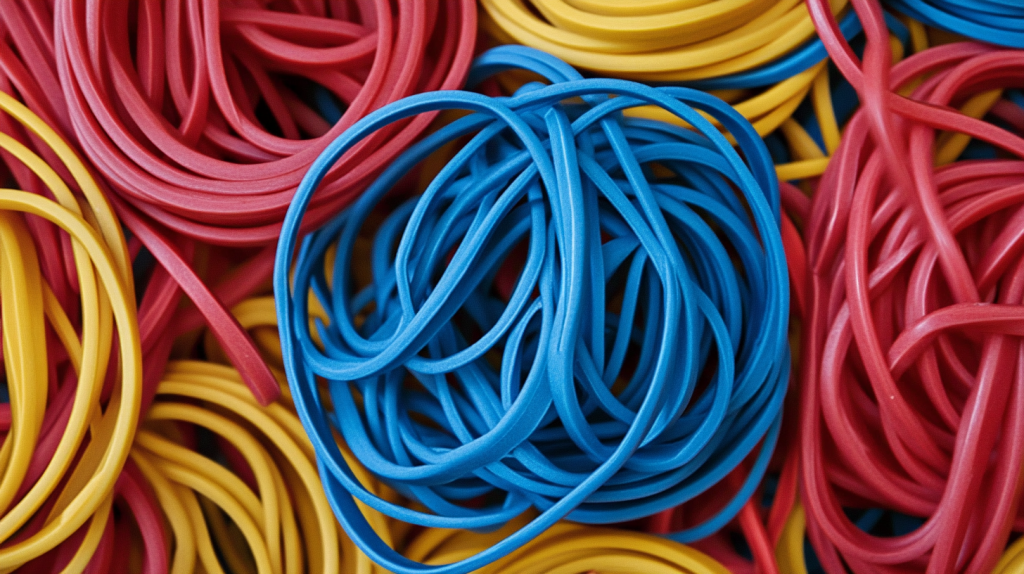
It might seem obvious, but non-food items should never go in your disposal. Things like rubber bands, twist ties, or small utensils can damage the blades or jam the motor. A single metal spoon can destroy your disposal’s grinding mechanism. Always check the disposal opening before turning it on.
13. Large Amounts of Food at Once
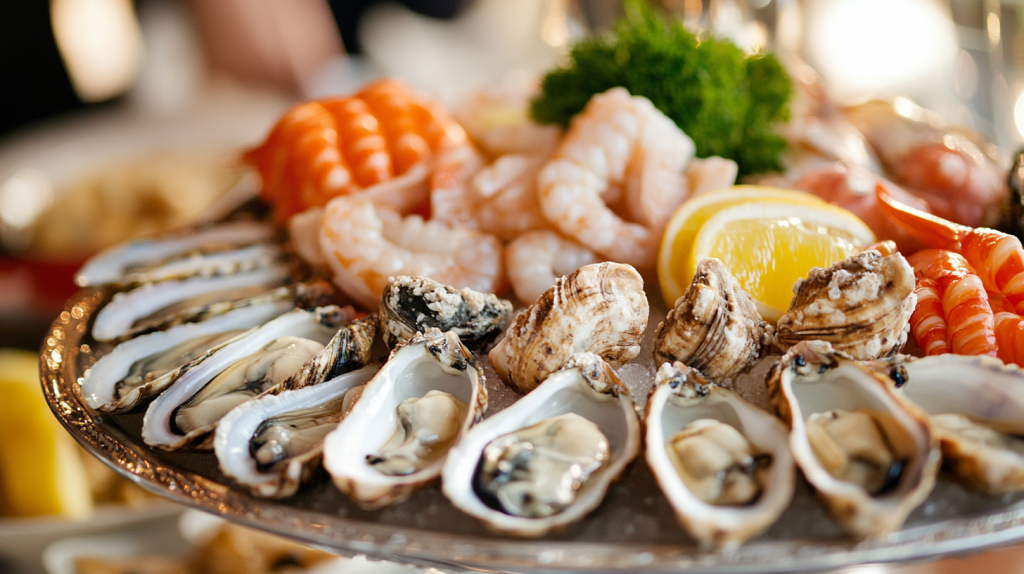
Overloading your disposal can strain the motor and lead to clogs. Feed waste gradually, using cold water to help flush it through. A good rule of thumb is to only dispose of about 1 cup of food waste at a time. This allows the disposal to grind effectively and reduces the risk of jams.
14. Medication
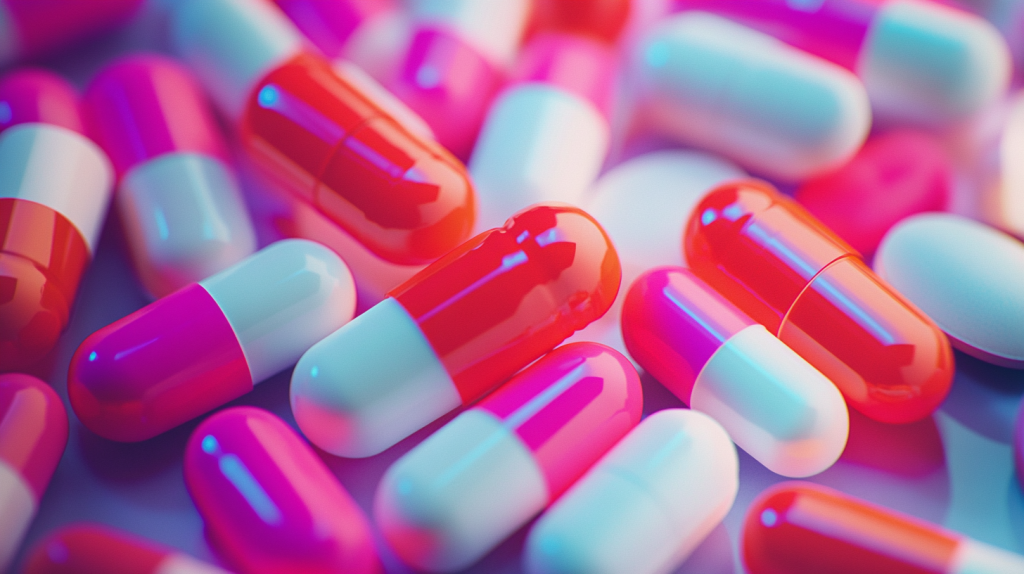
Never use your disposal to get rid of old medications. The chemicals can contaminate water supplies and harm wildlife. Most water treatment plants aren’t equipped to remove these substances. Instead, check with your local pharmacy about proper medication disposal methods.
15. Paint
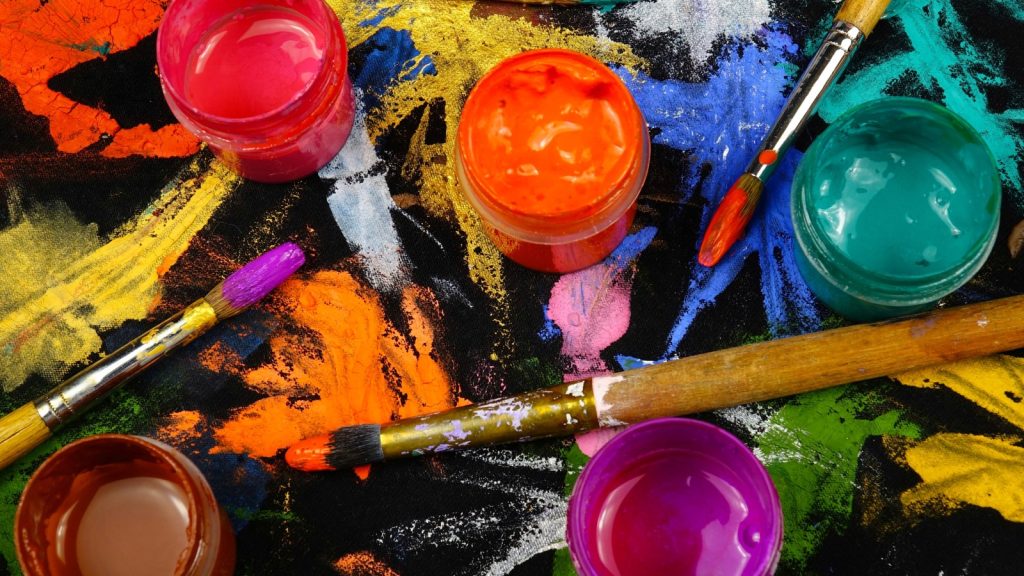
Paint can coat the inside of your disposal and pipes, leading to clogs and potentially damaging the motor. It also contains chemicals that shouldn’t enter the water system. Dispose of paint according to local regulations, usually at a hazardous waste collection site.
16. Coffee Filters and Tea Bags
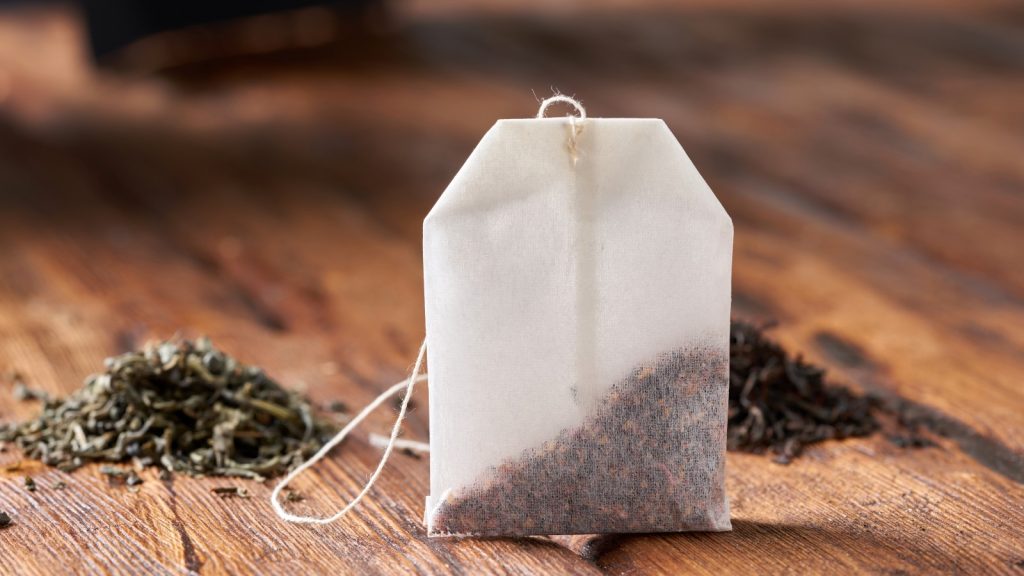
While coffee grounds and tea leaves are problematic, the filters and bags are even worse. These can wrap around the disposal’s blades or get caught in the pipes, causing clogs. The fibers in tea bags and coffee filters don’t break down easily in water. Compost these items instead.
17. Seafood Shells
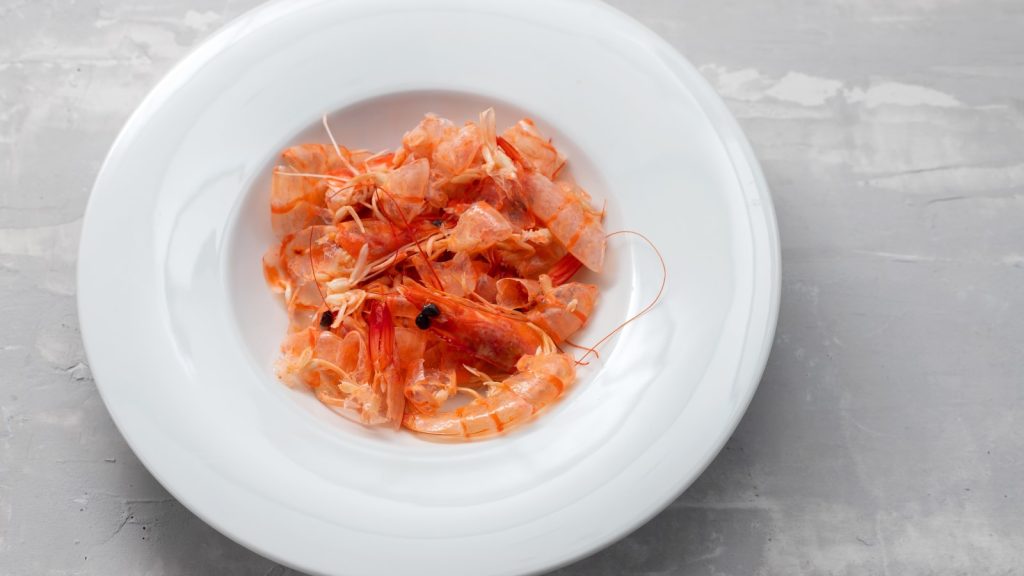
Shells from shrimp, lobster, and other seafood are too hard for most disposals to grind effectively. They can dull the blades and potentially cause jams. Even if ground up, shell fragments can accumulate in pipes and cause blockages. Use seafood shells to make stock or dispose of them in the trash.
18. Fruit Stickers
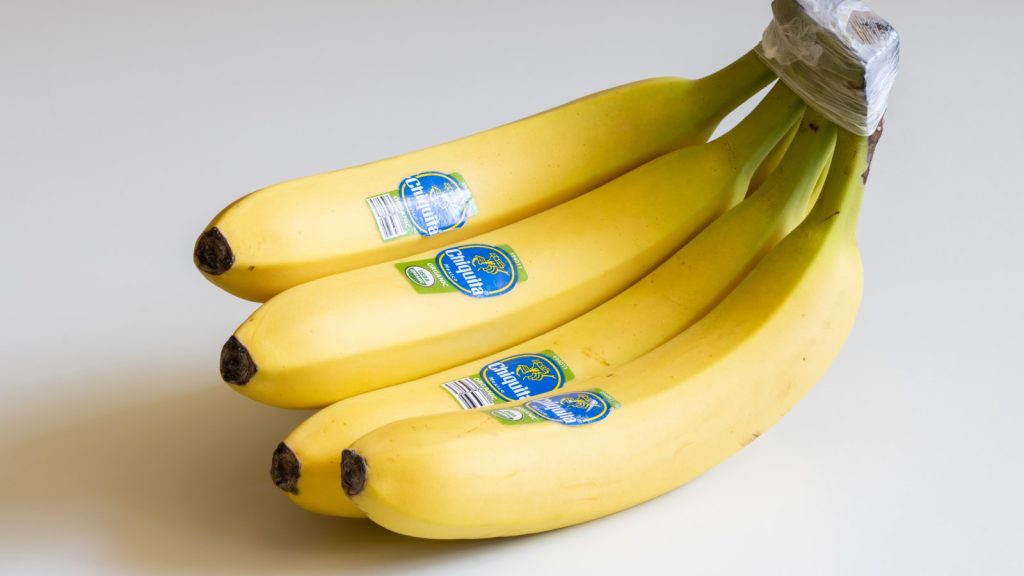
Those tiny stickers on fruits and vegetables might seem insignificant, but they can cause big problems. They don’t break down in water and can stick to the sides of your disposal or pipes. Always remove these stickers before putting fruit or vegetable scraps in the disposal.
18 Everyday Things Amish Women Aren’t Allowed to Do

The Amish culture is known for its simple way of life and adherence to traditional values. While this lifestyle may seem appealing to some, there are certain restrictions that Amish women face that most modern women do not. Take a look at these things that we take for granted that are off-limits to Amish women.
Read More: 18 Everyday Things Amish Women Aren’t Allowed to Do
Katy Willis is a writer, master herbalist, master gardener, and certified canine nutritionist who has been writing since 2002. She’s finds joy in learning new and interesting things, and finds history, science, and nature endlessly fascinating.
